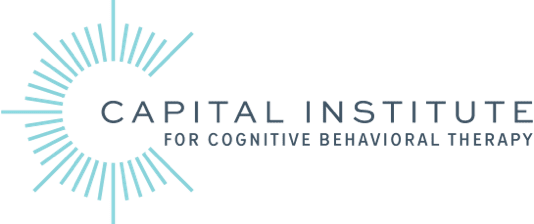What is CBT?
Cognitive behavioral therapy (CBT) is a practical, solution-focused approach to therapy that has been shown to be effective for many mental health problems. A large number of clinical trials with real patients have demonstrated that the majority of people treated with CBT experience measurable improvements in their symptoms and quality of life.
CBT is
present focused.
CBT is present focused.
The primary goal of CBT is to identify thoughts, behaviors, emotions, and circumstances in the present that contribute to your symptoms. This allows your therapist to suggest practical things you can do now to improve your life. Understanding your past, of course, may sometimes be helpful in order to help find the best present solutions.
CBT is
skills-based
CBT is skills-based
A major premise of CBT is that finding new ways to think, act and manage your emotions can help you feel better. Understanding your problems can be useful, but you also need to know what to do about them. A key component of CBT is teaching you skills that you can use in your everyday life. Research shows that when people practice CBT skills between sessions they have better outcomes.
CBT is
collaborative.
CBT is collaborative.
Your therapist has expertise and experience using treatment techniques that have been proven to be effective. You are the expert on your goals, your values and what works for you. Together, you function as a team to find the best approach to help you live a better, more fulfilling life.
CBT is
structured.
CBT is structured.
Your therapist will work with you to identify your goals for therapy and ways to measure progress toward those goals. They will also help set an agenda for every session so that together you can make the most efficient use of your time. Sometimes, of course, the most efficient thing to do will be to take the time to listen and understand your experience.
CBT is
research-based.
CBT is research-based.
Over many years of research, CBT pioneers have developed and tested different treatment protocols for specific problems. We believe it is not enough for a therapist to know general CBT techniques. They need to know the protocols that have been proven effective for the problems you face. They also need to have the skill and experience to adapt those protocols to meet your needs and preferences.
Types of CBT
With continued research and clinical experience, CBT has evolved into a family of related therapies, all sharing a common commitment to a practical, research-proven approach to reducing human suffering. CBT therapies include:
- Acceptance and Commitment Therapy
- Behavioral Activation
- Cognitive Processing Therapy
- Cognitive Therapy
- Compassion Focused Therapy
- Dialectical Behavior Therapy
- Emotional Schema Therapy
- Exposure and Response Prevention
- Metacognitive Therapy
- Mindfulness-Based Cognitive Therapy
- Prolonged Exposure
- Schema Therapy
- Unified Protocol

